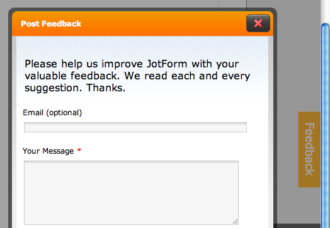You might think that giving positive employee feedback is a simple task. While it’s more pleasant and less stressful than delivering critical feedback, praising an employee comes with its own pitfalls. After all, too much praise can backfire if employees get the idea they have no room for improvement.
Here are five valuable tips for giving workplace feedback that’s both positive and improves productivity.
5 tips on giving positive employee feedback
- Be sure your positive feedback really is positive
- Never give positive employee feedback out of pity
- Be specific about why you’re giving praise
- Connect feedback to the bigger picture
- Combine positive feedback with rewards
Be sure your positive feedback really is positive
Never give positive employee feedback out of pity
Be specific about why you’re giving praise
Connect feedback to the bigger picture
Combine positive feedback with rewards
People tend to give feedback on actions or behaviors they deem wrong. Many managers harp on the employee’s imperfections even when the employee is doing a good job overall. But Ciara Hautau, digital marketing executive at Sparro, recommends focusing on the positive in most cases. “Positive reinforcement can help employees gain (or regain) confidence and motivation in their roles.”
Hautau shares the story of how one of her former managers created an uncomfortable working environment by only giving negative feedback. “I could never tell if anything I was doing was right,” she says. “It would have been much better if I had received at least some positive feedback. Positive feedback would have guided me to produce work that was more aligned with my manager’s expectations.”
In contrast to her first tip, Hautau notes that too much praise, too frequently, has diminished impact. While you should praise an employee who meets or exceeds expectations, don’t praise because you feel sorry for them. Bringing pity into the equation sends the wrong message.
“Give constructive feedback if the employee does something that needs to be corrected, and positive feedback when the employee has done something noteworthy,” Hautau says. “This builds trust with the employee and gives your positive feedback more meaning.”
“If you aren’t specific when giving positive feedback, your employees won’t know what they did right and, therefore, won’t be able to continue the desired behavior,” explains Nate Masterson, CMO of Maple Holistics. He says the feedback should be focused on specific tasks, not generalizations. Simply telling an employee that their work is good doesn’t tell them how it could be better.
“Instead of just saying, ‘You did a great job,’ tell the employee what you specifically mean,” Masterson says. “Tell the employee she did a great job because she was extremely thorough and communicated clearly so the whole team understood her proposal. This tells the employee what stuck out to you so they know to continue focusing on those aspects going forward.”
Masterson says it’s important to share how an employee’s work impacts various aspects of the business, such as the client, the team, or the company. Explain to the employee how the processes or outputs they’re accountable for affect their colleagues and customers, and then connect this to the company’s strategic goals.
“For example, an employee may be in charge of client acquisition. Explain how their efforts and decisions ultimately impact the success of the company. Making this connection gives meaningful weight to your positive feedback,” says Masterson.
Positive feedback by itself motivates employees, but pairing feedback with rewards demonstrates that you’re serious about your message. There are rewards more meaningful than a gift card or small bonus.Christopher Paterniti, account manager at Dilate Digital, says high-performing employees may find more meaning in a nonmonetary reward: “For example, you can give them more responsibility or flexibility within their role. That will keep them on their toes and hungry to come to work every day.”





















Send Comment: